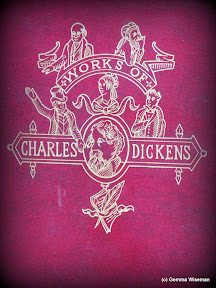
The Promised Land - Sushma Joshi - in ITCH - Journal of Creative Expression - Issue 6 - 29th June 2010.
December 16, 2013 I was moved to see all the Mandela memorial events this week. And it reminded me that I'd had a story published in ITCH, a South African journal, in 2010. So, in his memory and with South Africa on my mind ...
beyond today
Umesh Acharya, only son of an illustrious family of judges and diplomats, inheritor of lavish acres of land in Banepa, and owner of two centrally located Kathmandu apartment buildings, decided to leave for America a week after his marriage...
beyond the valley of home
But Umesh, who had watched all his friends leave Kathmandu one by one...
could the light be brighter
if he attended community college for a year and improved his grades, he could transfer to a better college...
could I learn more
Umesh reached Ohio in the middle of September.
but the leaves are turning
Welcome to America," he said, taking out Umesh's Samsonite suitcases and dragging them into the narrow, carpeted hallway. It smelled of old cats.
the warmth is dying
"Its expensive to live alone, so all eight of us in the college share the rooms," Abhisekh explained
we cannot be what we were
All of us work these kinds of jobs. Remember Kundan-Sir?" "Our physics teacher?" "That's right. He is stacking boxes at a supermarket right now in New York. Remember Suresh? He was a batch behind us?" "What about him?" "He pumps gas at a station in Idaho." "I don't believe it," was all Umesh could say. "Remember Ranay?" Abhisekh continued pitilessly. "Ranay who wanted to be a doctor?" "Ranay works at an Indian restaurant now, waiting tables. He dropped out of college and is illegal."
we cannot become
more than we were
we have lost
'Have I come thousand of miles and paid ten times more for an education that was worse than a public college in Kathmandu?' he thought.
I have lost
"The Promised Land," said somber ochre letters outside the funeral parlor where Purna dropped him off.
I can only
light
the ashes
MORE BY SUSHMA JOSHI
Shelling Peas and History Lessons - Mascara Literary review
NOTE
I intercepted her words with side-track poetry
which becomes my review
MORE BY SUSHMA JOSHI
Shelling Peas and History Lessons - Mascara Literary review
NOTE
I intercepted her words with side-track poetry
which becomes my review








